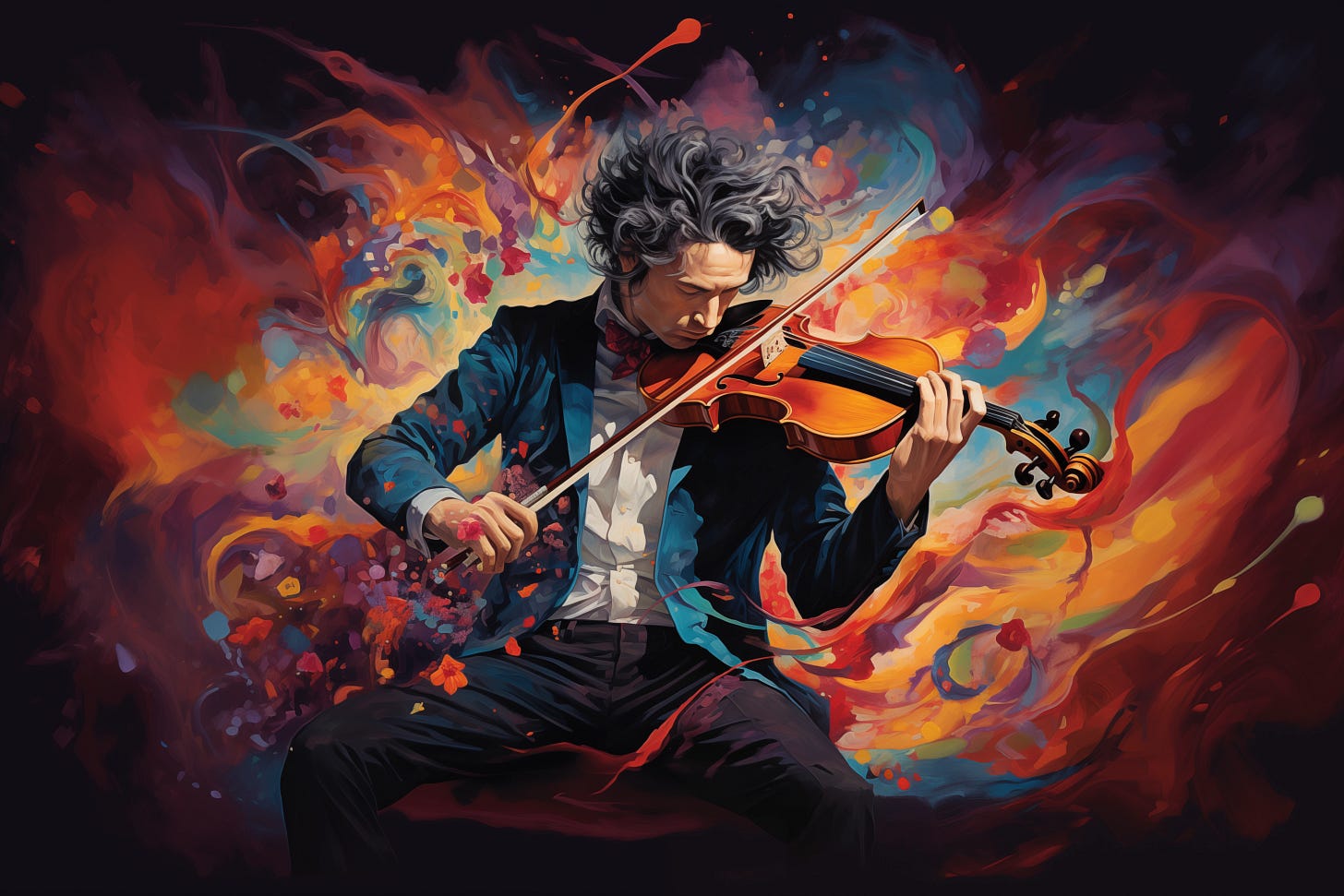Our world is one where radical self-acceptance and hypercompetitiveness coexist in an uneasy tension. What do I mean by this? Today's cultural overemphasis on authenticity has descended into the absurd. No attribute is off-limits from expression, no niche too peculiar to claim proudly as one's own. We're told that, above all, we must "live our truth". Within this mutated framework, we've lost personal accountability. Self-love untouched by self-critique quickly became self-idolatry. Gentle guidance is construed as violent microaggression. Narcissism is cherished as a virtue. Discomfort with change stifles all growth.
Yet while individuals are increasingly urged to 'be themselves', we are paradoxically more rivalry-driven than in any previous era. Historically, people have only been compelled to compete with those in their locality and with similar status. But gone are the days when individuals need only prove themselves among neighbours. Social media has brought all humanity to our fingertips - and with it, pressures unknown to prior generations. Once embedded in tight-knit circles, our results are endlessly benchmarked against anyone with an internet connection. Whole industries rely on travellers digitally documenting every airport lounge, 5-star hotel and exotic vacation to really drive home the point that they're living their best life. As globalisation opened up markets, it radically amplified the race for limited opportunities across national borders, cultures, and backgrounds.
Inevitably, people end up with the worst of both worlds. Despite constantly assessing where we stand compared to others, we remain stagnant in our personal growth and identity. Overemphasising both individuality and competitive ranking pulls us in contradictory directions, resulting in an inner conflict that prevents true well-being, satisfaction or connection.
In this regard, the biblical account of Yitzchak's Binding, known as the Akeidah, provides guidance in navigating our contemporary predicament. We are naturally puzzled by the verse's assertion that "God tested (nisa) Avraham." In general, we perform tests to discover something unknown. Scientists conduct them to investigate a material's properties. Millennials take BuzzFeed questionnaires to determine which Harry Potter character they relate to most. Yet applying this concept of "testing" to an all-knowing God seems absurd. It is simply inconceivable that He was unaware Avraham would triumph in this final trial. So why not skip it altogether?
One line of thinking construes trials, or nisyonos, as opportunities for increased spiritual reward. Under this framework, challenges are akin to handicaps in sports—they make success more impressive and the prize sweeter. There are, however, many who struggle with this take. Couldn't God just give us the reward instead?
In describing the nature of divine tests, the Ramban distinguishes between a person's latent unmanifested attributes and those realised through dedicated action. Within each of us, there lies a spark, sacred yet untapped, yearning for expression. Accordingly, trials allow us to refine our inherent qualities and fully integrate them into our character. Just as repeated practice transforms musical talent into renowned virtuosos, divine tests help unlock our spiritual potential. In encountering hardships, we cultivate dormant virtues that may have otherwise remained undeveloped. As we respond to life's difficulties with empathy, courage, and faith, these qualities solidify themselves in a more substantial way. Exceptional souls are thus moulded in the crucible of perseverance.

This perspective reconciles modernity’s emphasis on authentic self-expression with a more constructive form of personal growth. And it's one rooted in inner transformation rather than benchmarking against neighbours. Today's culture is correct in claiming that our greatest self is already within. But where the Torah's message differs is that it is something that has to be brought out and developed.
Because of our ingrained purposes, we need not constantly assess our performance compared to others. Rather than seeking validation through 'likes' and 'follows', we must turn inward to focus on actualising our unique spiritual purpose. Competition is redefined – our only rival is the person we were yesterday. By overcoming trials, we sculpt ourselves into the fulfilled beings we were meant to become. Thus, we can embrace individuality not as an excuse for narcissism but as a call to fulfil our particular mission. And we can strive to better ourselves, not to outdo others, but to cultivate our God-given talents.
It is only against our former selves that we compete to become the fullest expression of who we are meant to be. Staying true to our spiritual core liberates us from the tension between self-acceptance and competitive rivalry. We find wholeness in nurturing our inner flame rather than seeking validation through constant comparison.
We continue to pray for the well-being of our Jewish brothers and sisters.
If you enjoyed reading this, feel free to click the ❤️ button on this post so more people can discover it on Substack 🙏





Thanks for this, Yaakov. This should be useful, even to a non-Jewish atheist like myself. Well done.
Love your quote in the beginning which seems to sum it all up: “Self-love untouched by self-critique quickly became self-idolatry.”